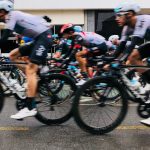As the basketball season reaches its midpoint, players often find themselves grappling with fatigue. This is a critical juncture where the performance, recovery, and mental focus of athletes must be managed meticulously. For UK basketball players, adopting effective recovery strategies is essential to ensure peak physical performance and mental agility. This article delves into the most effective strategies backed by scientific research, including insights from Google Scholar and systematic reviews.
Understanding Mid-Season Fatigue in Basketball Players
Mid-season fatigue is a phenomenon that affects many elite athletes. The cumulative training loads, continuous competition, and relentless pressure to perform can lead to both physical and mental fatigue. According to numerous scholar reports, addressing this fatigue is crucial for athlete success.
This might interest you : What are the best recovery techniques for UK basketball players after intense training sessions?
Physical Fatigue
Physical fatigue manifests as muscle soreness, reduced muscle strength, and overall tiredness. This can significantly impact training and performance during games. Basketball players are particularly prone to this due to the sport’s high-intensity nature.
Mental Fatigue
Mental fatigue is equally detrimental. It impairs cognitive functions such as decision-making, focus, and reaction time. For elite athletes, mental sharpness is just as important as physical prowess. Various studies on Google Scholar highlight the link between mental fatigue and decreased athletic performance.
Have you seen this : What are the best practices for UK basketball players to maintain focus during games?
Effective Recovery Strategies for Basketball Players
To combat mid-season fatigue, UK basketball players must employ a combination of recovery strategies. Here, we explore some of the most effective methods based on sports med research and int sports reviews.
Sleep: The Ultimate Recovery Tool
Sleep quality is paramount for any recovery plan. Ensuring adequate sleep time and creating an optimal sleep environment can significantly improve both physical and mental recovery.
Importance of Sleep
Numerous studies have reported that sleep is crucial for recovery, muscle repair, and cognitive function. According to a systematic review in the sports med journal, athletes who prioritize sleep show better performance and reduced injury rates.
Tips for Better Sleep
- Consistent Schedule: Maintain a regular sleep-wake cycle.
- Environment: Optimize your bedroom for sleep by controlling light, noise, and temperature.
- Pre-Sleep Routine: Engage in calming activities before bed, such as reading or meditation.
Active Recovery: Balancing Rest and Activity
Active recovery involves low-intensity exercises that promote blood flow and muscle relaxation without causing additional strain.
Benefits of Active Recovery
Studies have shown that active recovery can help reduce muscle stiffness and soreness. It also aids in psychological relaxation, which is crucial during high-pressure competition periods.
Recommended Activities
- Light Jogging: Helps maintain cardiovascular fitness without overtaxing the muscles.
- Yoga: Enhances flexibility and provides mental relaxation.
- Swimming: Offers a full-body workout with minimal joint stress.
Compression Garments: A Modern Recovery Aid
Compression garments have gained popularity among elite athletes for their potential to enhance recovery.
How They Work
These garments apply graduated pressure to specific body parts, improving blood circulation and reducing muscle swelling. A study published in med doi indicates that compression garments can accelerate recovery times and reduce muscle soreness.
Best Practices
- Usage Duration: Wear compression garments during and after exercise for optimal benefits.
- Fit: Ensure a snug but comfortable fit to maximize effectiveness.
Cold Water Immersion: A Time-Tested Method
Cold water immersion, or ice baths, is a staple in many athletes’ recovery routines. This method involves submerging the body in cold water to reduce inflammation and muscle soreness.
Scientific Backing
Research from int sports journals has repeatedly confirmed the efficacy of cold water immersion. It helps in reducing muscle damage and speeds up the recovery process.
Guidelines for Use
- Temperature: Maintain water temperature between 10-15°C.
- Duration: Limit immersion time to 10-15 minutes.
- Frequency: Use after intense training sessions or games.
Nutrition: Fueling Recovery
Proper nutrition is a cornerstone of effective recovery. Consuming the right nutrients at the right time can enhance muscle repair and replenish energy stores.
Key Nutrients
- Proteins: Essential for muscle repair and growth.
- Carbohydrates: Replenish glycogen stores depleted during intense activity.
- Antioxidants: Help combat oxidative stress and inflammation.
Timing Matters
Consume a balanced meal or recovery shake within 30 minutes post-exercise for maximum benefit. This “window of opportunity” is critical for effective nutrient absorption and utilization.
Personalizing Recovery Plans
While these strategies provide a general framework, it’s crucial for UK basketball players to tailor their recovery plans to their individual needs. Factors such as training loads, personal physiology, and specific recovery requirements must be considered.
Monitoring and Adjusting
Using training and recovery monitoring tools can help athletes track their progress and adjust their strategies accordingly. Apps and wearables can provide insights into sleep patterns, activity levels, and overall fatigue.
Consulting Experts
Engage with sports med professionals, nutritionists, and coaches to develop a comprehensive and personalized recovery plan. This holistic approach ensures all aspects of recovery are addressed.
As mid-season fatigue sets in, UK basketball players must adopt effective recovery strategies to maintain peak performance levels. By prioritizing sleep quality, engaging in active recovery, using compression garments, incorporating cold water immersion, and focusing on proper nutrition, athletes can combat fatigue and enhance their athletic performance. Personalizing these strategies to fit individual needs ensures a holistic approach to recovery, paving the way for success in training and competition.
In conclusion, addressing mid-season fatigue with scientifically-backed recovery strategies is essential for UK basketball players aiming for peak performance. By implementing these methods, athletes can maintain their physical and mental edge, ensuring they are ready to face the challenges of the season head-on.






